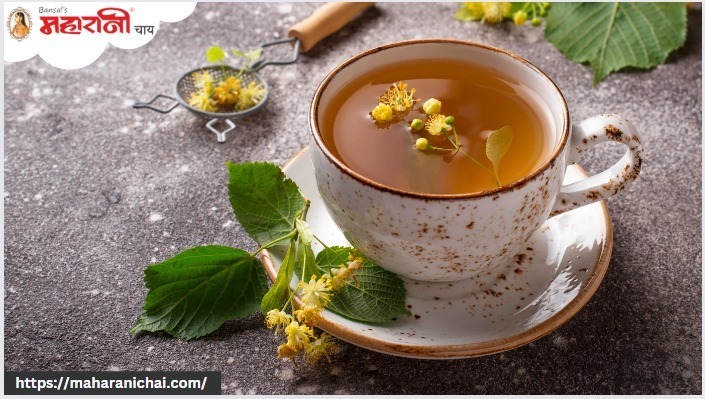There’s a reason people worldwide drink tea, and it’s thousands of years old. Tea can boost your immune system, fight inflammation, and prevent cancer and heart disease. Some brews are more beneficial than others for regular tea drinking. We’re sharing some of the tea’s greatest benefits, so get the kettle on.
Tea Origin Country
Tea originated in China thousands of years ago, but it’s now cultivated in many countries worldwide. China, India, Sri Lanka, Kenya, and Japan are the main tea-producing countries. Tea cultivation is prominent in India’s Assam, Darjeeling, and Nilgiri. Each region produces teas with distinct flavors and characteristics.
Types of Tea Leaves In India
Indian Teas Are Typically Produced of The Following Types:
- Herbal Tea: Herbal teas are made from dried herbs, spices, flowers, and fruits. They are caffeine-free and enjoyed for their soothing and medicinal properties. India’s herbal teas include blends of herbs like tulsi tea (holy basil), ginger, lemongrass, and mint.
- Black Tea: This is the most common tea type produced in India. Assam and Darjeeling are famous for their black teas. Assam black teas are bold and malty, while Darjeeling teas are known for their muscatel flavor and floral aroma.
- White Tea: While not as prevalent as black tea, white tea production is increasing in India. White tea is minimally processed and has a delicate flavor profile. It’s often made from the young leaves and buds of the tea plant.
- Oolong Tea: Oolong tea production is relatively limited in India compared to other types. However, some regions like Darjeeling produce small quantities of Oolong tea. Oolong tea is partially oxidized, resulting in a flavor profile between green and black teas.
The medicinal properties of tea vary depending on its type.
- Antioxidants: Green and white tea contains catechins and polyphenols that reduce oxidative stress and chronic disease risk.
- Caffeine: Caffeine in tea improves alertness and concentration when consumed moderately.
- L-theanine: This amino acid found in tea leaves has calming effects and may reduce stress and anxiety.
- Heart Health: Some studies suggest regular tea consumption may lower heart disease and stroke risk.
- Digestive Health: Ginger or peppermint tea relieves nausea and heartburn.
Tea nutrition facts show that it is generally low in calories and fat or cholesterol. The nutritional content may vary slightly depending on the type of tea and any additives like sugar or milk. Tea is primarily composed of water, with some micronutrients like manganese, potassium, and trace amounts of vitamins B2, B1, and B3.
Medicinal Properties of Tea In General
Tea, particularly green and black tea, is renowned for its various medicinal properties and health benefits. Below is a list of tea medicinal uses and properties:
- Antioxidant Properties: Tea contains polyphenols, catechins, and flavonoids, which are powerful antioxidants.
- Anti-Inflammatory Effects: In green tea, epigallocatechin gallate (EGCG) has anti-inflammatory effects.
- Heart Health: Tea consumption reduces cardiovascular disease risk. Tea antioxidants may lower blood pressure cholesterol, and promote heart health.
- Weight Management: Green tea’s caffeine and catechins may aid weight loss by increasing fat oxidation and energy expenditure.
- Mental Alertness: Tea’s caffeine content promotes alertness, mental clarity, and focus.
Green Tea Medicinal Properties
- Cancer Prevention
- Weight Loss
- Diabetes Management
- Liver Health
Medicinal Properties of Black Tea
- Heart Health
- Digestive Health
- Oral Health
- Bone Health
Teas To Avoid
The following teas are not recommended for your health:
- Detox tea is used to lose weight quickly on fad diets. These teas contain harmful laxatives.
- Do you enjoy tea lattes from your favorite chain store? Despite its appearance, it is loaded with sugar.
- A trending bubble tea is also loaded with sugar, calories, and carbs, and has little nutritional value.
- Herbal teas can trigger allergies. Some people are allergic to herbal tea herbs, spices, and flower Teas. Before drinking herbal tea, read the ingredients on the package if you have allergies.
From ancient apothecaries to modern wellness enthusiasts, tea has stood the test of time as a natural remedy for numerous ailments. Whether you’re seeking to boost your immune system, support digestion, or unwind after a long day, there’s a tea for every occasion and wellness goal. So, brew a cup of your favorite blend, and let tea heal your body, mind, and spirit. Cheers to health and vitality!

